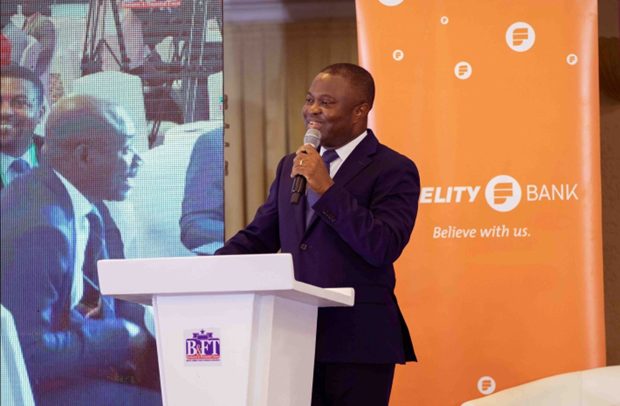Atta Yeboah Gyan
Deputy Managing Director at Fidelity Bank, Atta Yeboah Gyan, has called for a paradigm shift in investment strategies.
Speaking at the Business and Financial Times’ Money Summit recently in Accra, Mr. Gyan emphasised the critical role of savings and investment in fostering entrepreneurship, economic growth, and financial resilience.
He acknowledged the challenges of navigating today’s economic landscape, marked high inflation, interest rates, and social inequality.
He argued that traditional approaches to saving and investing were no longer sufficient and called for a paradigm shift towards sustainable investment.
“The challenges we face today as a nation are many, including high inflation, rising interest rates, slow economic growth, threats of sovereign default, public debt restructuring, climate change, social inequality, and technological disruption,” Mr. Gyan remarked.
“These multiple challenges have varied adverse effects on the economy and the citizenry. High levels of inflation, as we know, erode the purchasing power of savings, making it essential to seek out investment opportunities that offer returns that outpace inflation.”
Mr. Gyan further outlined key roles for various stakeholders in promoting a healthy investment and savings culture. Investors, he said, need to adopt a holistic risk management approach and seek financial literacy to empower themselves to make informed decisions about investments, understand the risks involved, and navigate the complexities of the financial markets.
Banks, he continued, must offer tailored investment solutions, and utilise technology to enhance accessibility. He emphasised the need to integrate environmental, social, and governance factors into investment strategies not only to mitigate the risks but also to attract socially conscious investors and contribute to sustainable economic growth.
He further called on regulators and policymakers to enforce regulations, promote market stability, and implement tax incentives for long-term savings.
“We must consider more tax incentives,” Mr. Gyan declared. “If, as a nation, we want to promote a culture of savings, we must induce that through tax incentives. If, for instance, I could save towards a child’s education and I could be allowed that as a deduction from my tax obligations, I have an incentive to save because I know that by saving, I will have to save something on my tax obligation. We must prescribe which long-term investments will qualify for tax incentives and pursue them.”
Such measures, Mr. Gyan believed, would not only enhance Ghana’s investment landscape but also contribute to its economic growth and stability.
“In our consideration of investment opportunities, do we see the waakye seller as an investment opportunity?” he challenged, suggesting equity partnerships.
He further questioned, “have we considered investing in schools, so we benefit from the fees we pay?”
Mr. Gyan concluded with a call to action, urging participants to chart a course towards a more sustainable and equitable future.
He also emphasised the need to channel resources towards sustainable energy, infrastructure, and impact investing. By embracing innovation, collaboration, and a focus on social and environmental benefits, Gyan believed Ghana could build a more resilient and prosperous future for all.
The event was themed, “Investing for the Future: Re-thinking Investment and Savings to Drive Sustainable Economic Growth” and sponsored by Fidelity Bank. It brought together key stakeholders to discuss the future of Ghana’s financial landscape.
By Samuel Boadi


